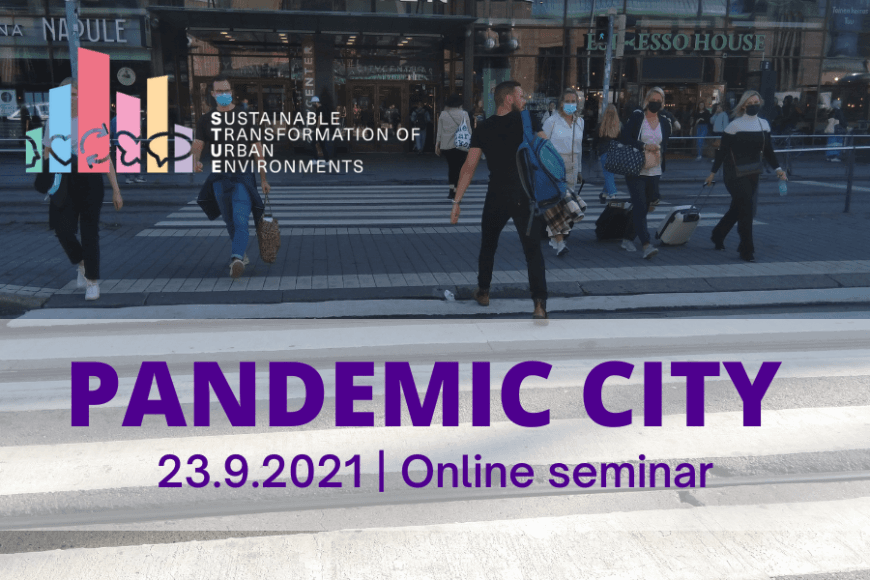
Katso seminaarin tallenne YouTubesta
Keynote-puheenvuorot:
Prof. Colin McFarlane, Dept. of Geography, Durham University, UK
The crowd and Covid-19: spectacle, politics and value in the UK
Apulaisylilääkäri Reetta Huttunen, Taysin infektioyksikkö
COVID-19 pandemic in Finland and the Pirkanmaa Hospital District
Lyhyet (15min) inspiroivat puheenvuorot:
- Prof. Jouni Häkli (pandemic and new forms of mobility control)
- Dr Georgiana Varna (urban planning after pandemic)
- Associate prof. Tarja Pitkänen (monitoring pathogens from wastewater)
- Prof. Turo-Kimmo Lehtonen (preparing for environmental and other wicked crises in cities)
Katso koko ohjelma ja ilmoittaudu mukaan 20.9.2021 mennessä
Colin McFarlane, abstract for the keynote: The Covid-19 pandemic has prompted a public debate on density and crowds in the city. While some initially blamed density for the spread of the virus, others cautioned against those claims. As the pandemic progressed, an imaginary of density-as-pathology gave way to a more nuanced geographical understanding of the urban dimensions of the crisis, focussed on connections, spatial conditions, domestic ‘overcrowding,’ and poverty, as well as concerns around different kinds of crowding. In this presentation, I reflect on the politics of density, and the crowd in particular, in the context of UK cities, and consider some of the possible longer-term consequences.
Lisätietoja
Tutkimuskoordinaattori Alisa Vänttinen, alisa.vanttinen@tuni.fi
